How This Salem Family Built a 100-Year Mango Business From Scratch
Over a hundred years ago, the Jayapal family didn’t have much, just a few mangoes to survive on. They weren’t farmers by choice but by necessity. Back then, it was just about growing enough to eat and sell to make sure the next day wasn’t harder than the one before. But from that simple start, something incredible grew.
Today, A Jayapal is in his orchard, his hands stained yellow from the mangoes he’s carefully sorting and packing. The air is thick with heat, and the scent of ripening fruit fills the space around him.
Jayapal’s family didn’t follow the usual story of climbing corporate ladders or seeking fortune in cities. They stayed grounded in the fields, under the sun, with their hands in the soil. What began as a struggle to survive has evolved into a legacy built around one fruit they’ve always loved: the mango.
For the Jayapals, it’s never been about the quick win. It’s about steady work, dedication, and passion — traits passed down through the generations. Over the years, this family has gone from scraping by to becoming a name known for their quality mangoes. And through it all, that love for the mango, a fruit that once meant survival, has remained at the heart of everything they do.
A childhood in trade
A. Jayapal’s association with mangoes began at an age when most children were still learning to hold their pencils right. Born into a family where mango trading was already a part of life, his childhood was shaped by the noise of the fruit market rather than the classroom.
“I studied only until class one because I did not have the resources or time to study,” recalls Jayapal, now 76 years old. “My father, Arumuga Gownder, and his business partner, Palani Gownder, were involved in the mango trade. My mother, Kanthayammal, would carry baskets of mangoes to sell, while my father had a pushcart at the Salem bus stand,” he adds.
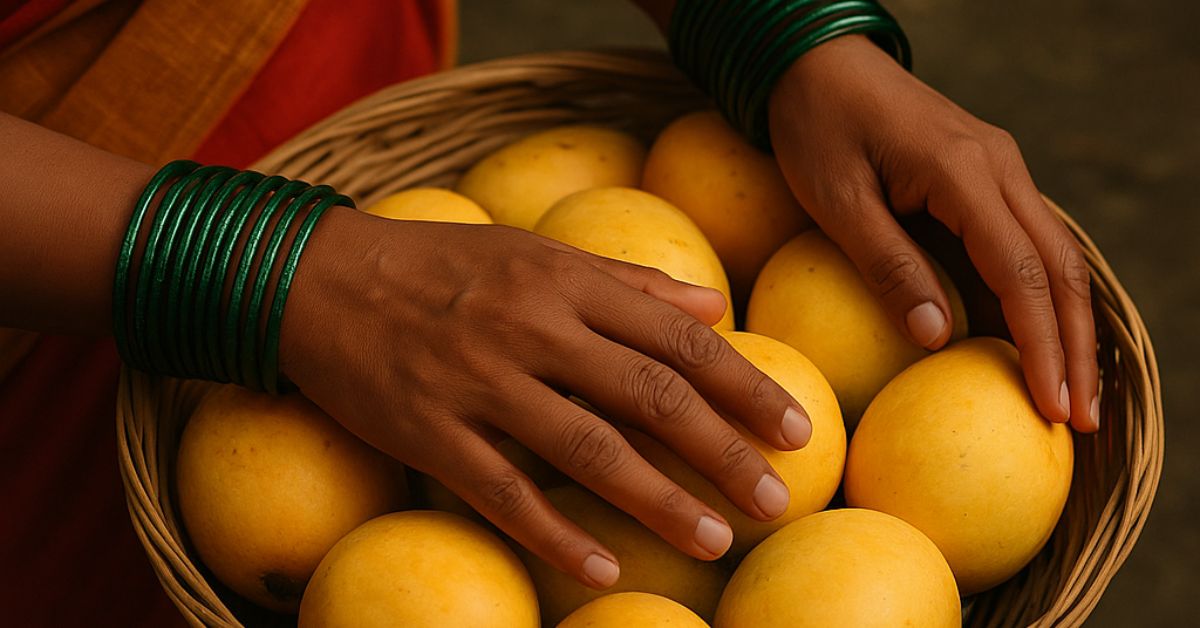 Jayapal and his mother used to sell mangoes in bus stands for their bread and butter. (AI-generated representational image)
Jayapal and his mother used to sell mangoes in bus stands for their bread and butter. (AI-generated representational image)
Tragedy struck when Jayapal lost his father in 1961 at just 12 years old, leaving him to shoulder the responsibility of supporting his mother. To make ends meet, he started working at his father’s partner’s shop, earning a modest Rs 30 a month.
“My duties included travelling to places like Vellore, Chennai, and Bengaluru to manage mango sales,” recalls Jayapal. In 1964, he was sent to oversee a leased mango farm in Yercaud for four months, an experience that deepened his understanding of farming and its many challenges.
By the time he turned 18 in 1967, Jayapal was ready to carve his own path. With the blessing of his former employer, he set up his small retail shop in the district. “I got this idea from a former employee at the old shop. So, I thought, why not try it myself?” he says.
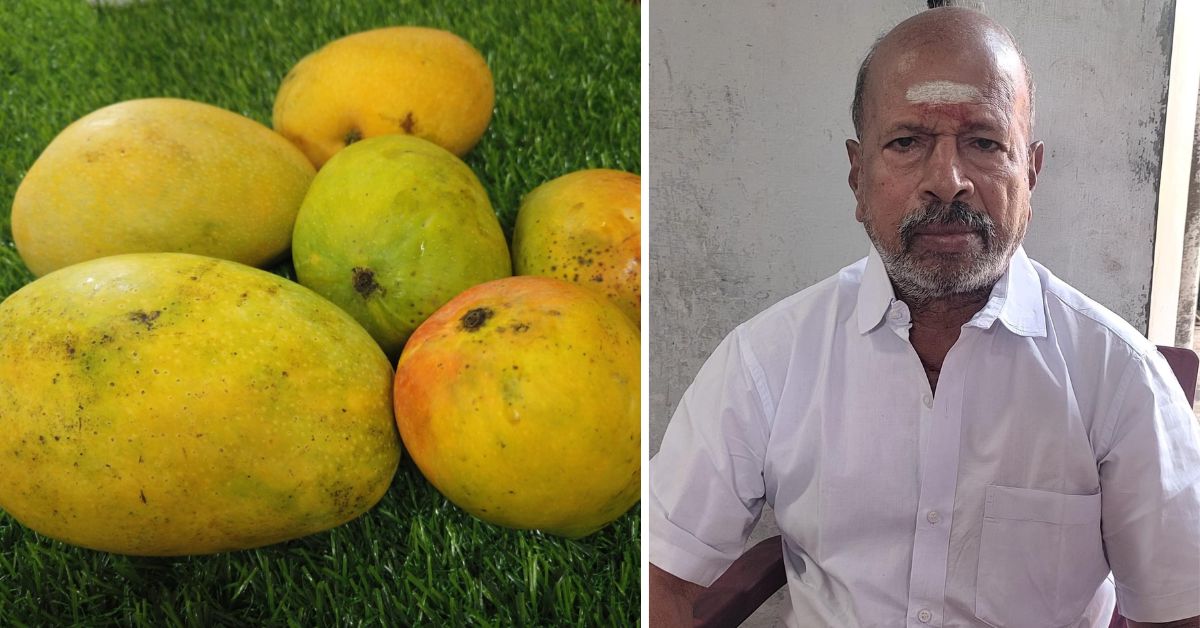 Jayapal was recognised for his hard work and fondly called ‘Fruit shop Jayapal’. Picture source: Srinivasan Jayapal and Salem Mangoes
Jayapal was recognised for his hard work and fondly called ‘Fruit shop Jayapal’. Picture source: Srinivasan Jayapal and Salem Mangoes
Marriage and family responsibilities followed, and in 1972, when he was 23, he wed Vijayalakshmi, whose family was also involved in the fruit business. However, just two years later, disaster struck again. A fire gutted his retail shop near the bus stand, forcing him to shift focus. He moved to Chinna Kadai Veethi in Salem and ventured into wholesale.
“The shop owner was kind enough to bear the expenses to restore the shop, which helped to bounce back better,” shares Jayapal. “From then till now, we have been doing wholesale. I have gained a good reputation for myself and my business,” he shares, fondly called Pazhakadai Jayapal (Fruit shop Jayapal).
The shift from retail to farming
In 1979, Jayapal took a significant step forward. He bought his first farm — a five-acre plot in Salem — for Rs 5000, a fortune in those days.
“My friend had owned the land, and he couldn’t make use of the farmland. So I purchased it from him. The land had a few mango trees, and we planted a few to begin with as well,” adds Jayapal. This marked his transition from being just a trader to a cultivator as well.
Over the years, the family slowly expanded its holdings, acquiring a 50-acre farm in Kariakovil and a 10-acre farm, cultivating over 3,000 mango trees. “We wanted to grow our business more, and cultivating our own trees was the best opportunity,” shares Jayapal.
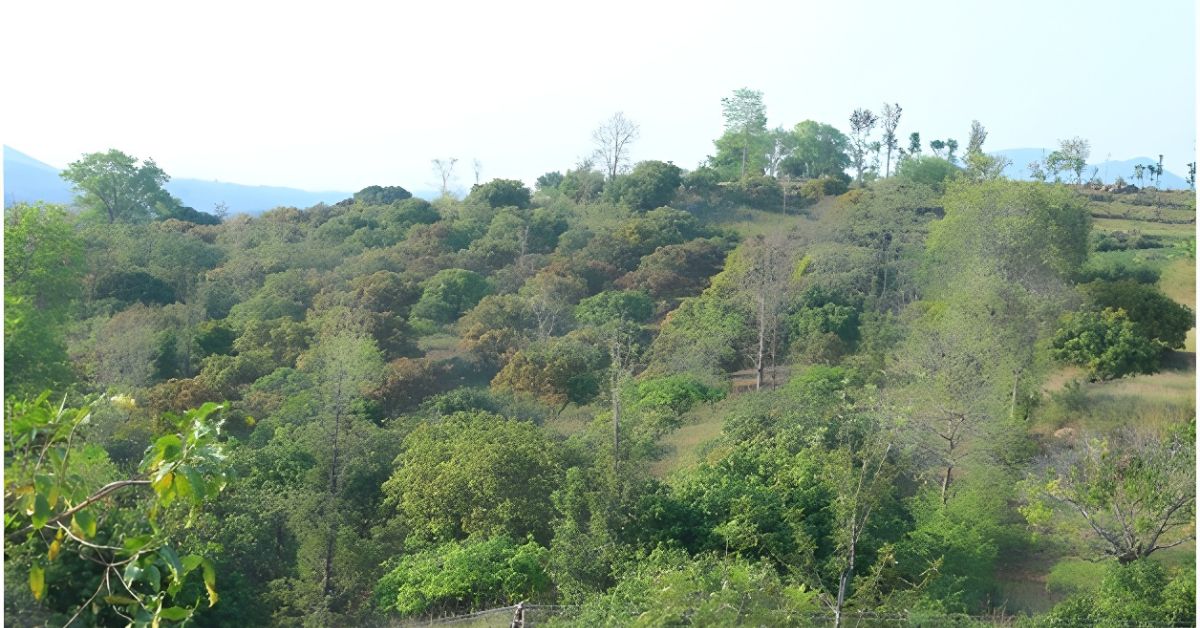 Jayapal shifted from retail to farming by investing in a five-acre plot. Picture source: Srinivasan Jayapal.
Jayapal shifted from retail to farming by investing in a five-acre plot. Picture source: Srinivasan Jayapal.
“Since I had the experience of managing a farm from a young age, I knew how things had to be handled in terms of the workers on the farms,” explains Jayapal. The family also leases additional land, managing over 100 acres across different partner farms.
Jayapal’s sons, including Srinivasan, grew up immersed in this world. “Since it is a family business, I have been associated with mangoes since I was 10 years old,” says Srinivasan, now 45, taking the business forward. “Earlier, we used to help out during summer holidays, watching and learning the craft as we grew up,” recalls Srinivasan.
Under Srinivasan’s leadership, the family business has embraced the digital age, taking a bold step forward. “While my father sold locally, we’ve expanded to reach customers across India. Now, we sell in bulk, and our website has opened new doors for us,” he shares. This shift to online sales has allowed them to cut out the middlemen, offering better prices for both farmers and customers alike.
 With Srinivasan’s efforts, they have been able to expand their business online. Picture source: Srinivasan Jayapal.
With Srinivasan’s efforts, they have been able to expand their business online. Picture source: Srinivasan Jayapal.
The family grows about 30 varieties of mangoes, including popular ones like Salem Bengalura, Imam Pasand, Alphonso, and Kesar. But it’s the Salem Nadusaalai mango that really makes an impression. “If you have one of these at home, your neighbours will definitely notice — the fragrance is that strong,” Srinivasan laughs.
The mango season is the busiest time for the Jayapal family. From April to June, they sell up to 3 to 4 tonnes of mangoes every day. It’s a time of hard work, with the air filled with the sweet smell of fresh mangoes and customers lining up for the best fruit.
But even when mangoes aren’t in season, the family keeps things going by selling other fruits like apples, bananas, and pineapples. This way, they make sure they have something to offer all year round.
‘Mango farming is almost like gambling’
Every mango season feels like a high-stakes game for farmers like Srinivasan. “Mango cultivation is almost like gambling,” he says, half-laughing, half-serious. “The rate changes every day, just like gold. One price in the morning, another in the evening.”
One wrong move—waiting too long to sell or banking on a better price—can cost them an entire harvest. “If you don’t sell today, hoping for a better price tomorrow, the mangoes might overripe, and you’ll have to throw them away,” he says, a hint of frustration in his voice.
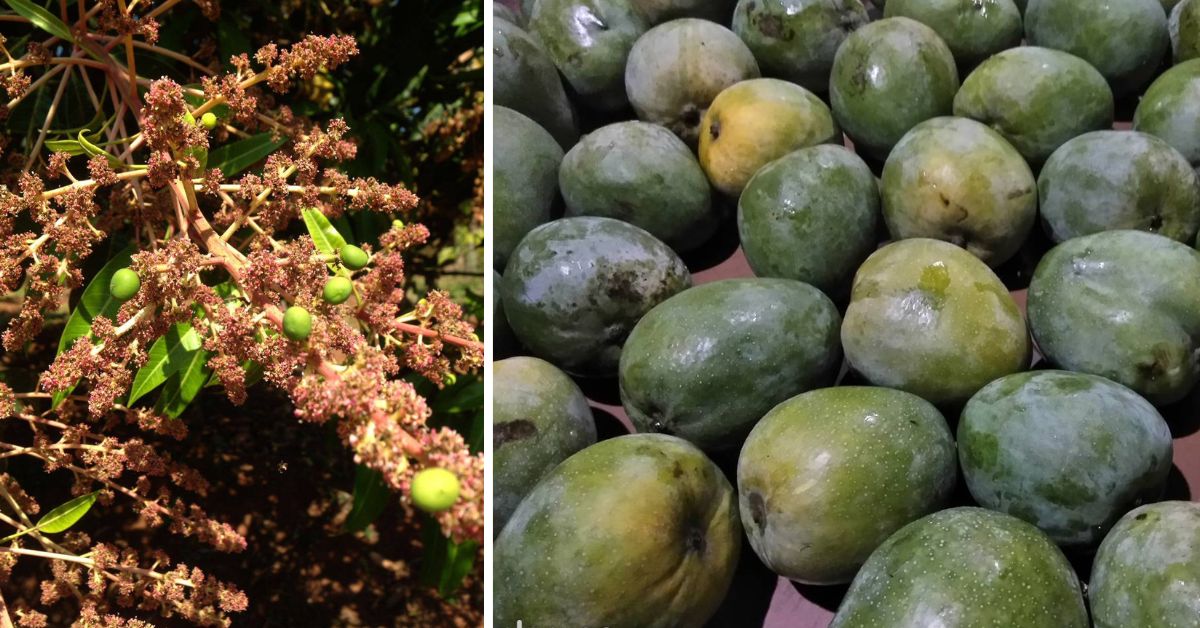 Since it is a perishable good, price fluctuations and demand drop are unavoidable. Picture source: Srinivasan Jayapal.
Since it is a perishable good, price fluctuations and demand drop are unavoidable. Picture source: Srinivasan Jayapal.
And as tricky as the market is, the weather is even more unpredictable. “There shouldn’t be any rain when the trees are flowering. When the fruit is small, it needs mild sunlight, and when it grows, a little rain is necessary. A slight imbalance can ruin an entire season,” he explains.
But what really sets their mangoes apart is how they ripen them, with patience and care. “Earlier, carbide stones were used to ripen mangoes quickly. But we don’t do that. We use only government-recommended pouches,” he says. It’s a slower process, but it ensures each mango is naturally ripened, bursting with real flavour and freshness.
What makes Salem’s mangoes so special?
Salem’s dry climate plays a quiet but powerful role in shaping the taste of its mangoes. “Where there is drought, mangoes are sweeter,” Srinivasan explains. The larger region — including Dharmapuri, Namakkal, and Krishnagiri — is fondly known as Old Salem, a belt famous for rich varieties like Salem Bangalore, Malgova, and Imam Pasand.
Through every uncertain season and changing market, the Jayapal family has held on — not just to a business, but to a way of life passed down for generations. From a young boy selling fruits on a bus to building a fourth-generation mango legacy, their story is one of quiet grit and deep love.
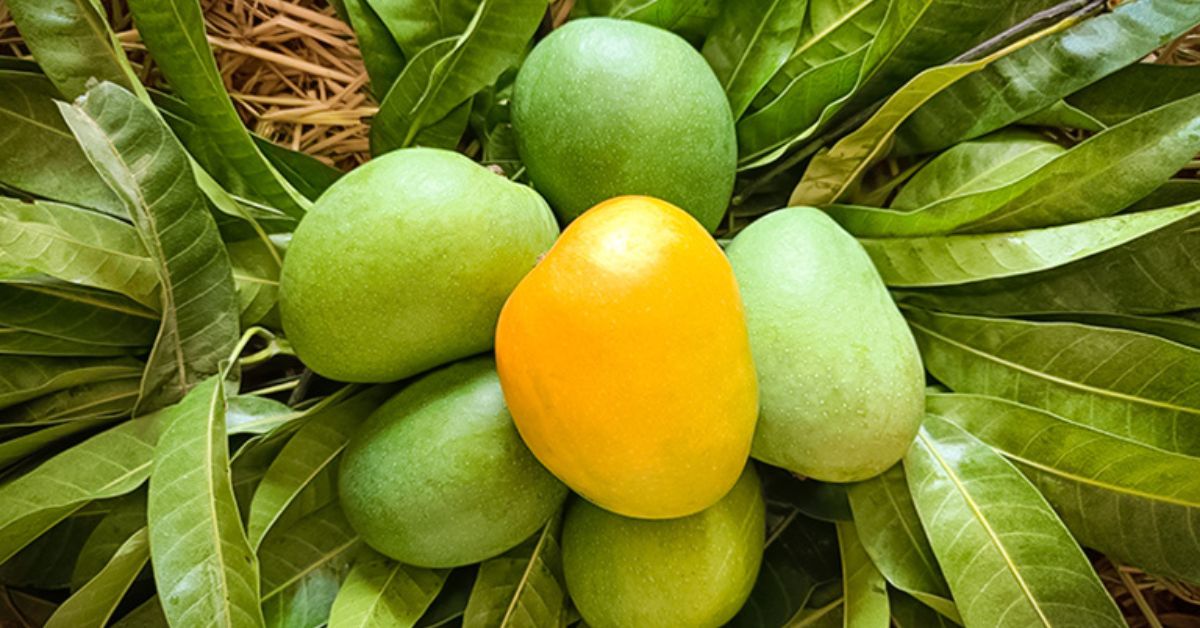 Each variety of mango has a distinct aroma. Picture source: Mango Wheel
Each variety of mango has a distinct aroma. Picture source: Mango Wheel
“I can close my eyes and tell you the variety just by its smell,” Srinivasan smiles. “Mangoes have been a part of our lives for so long that they run in our blood.”
As mango season rolls in, stories like theirs remind us that every fruit has a farmer behind it. And sometimes, supporting something as simple as a sweet, local mango means being part of something much bigger — a legacy of care, resilience, and homegrown pride.
Edited by Leila Badyari Castelino
News